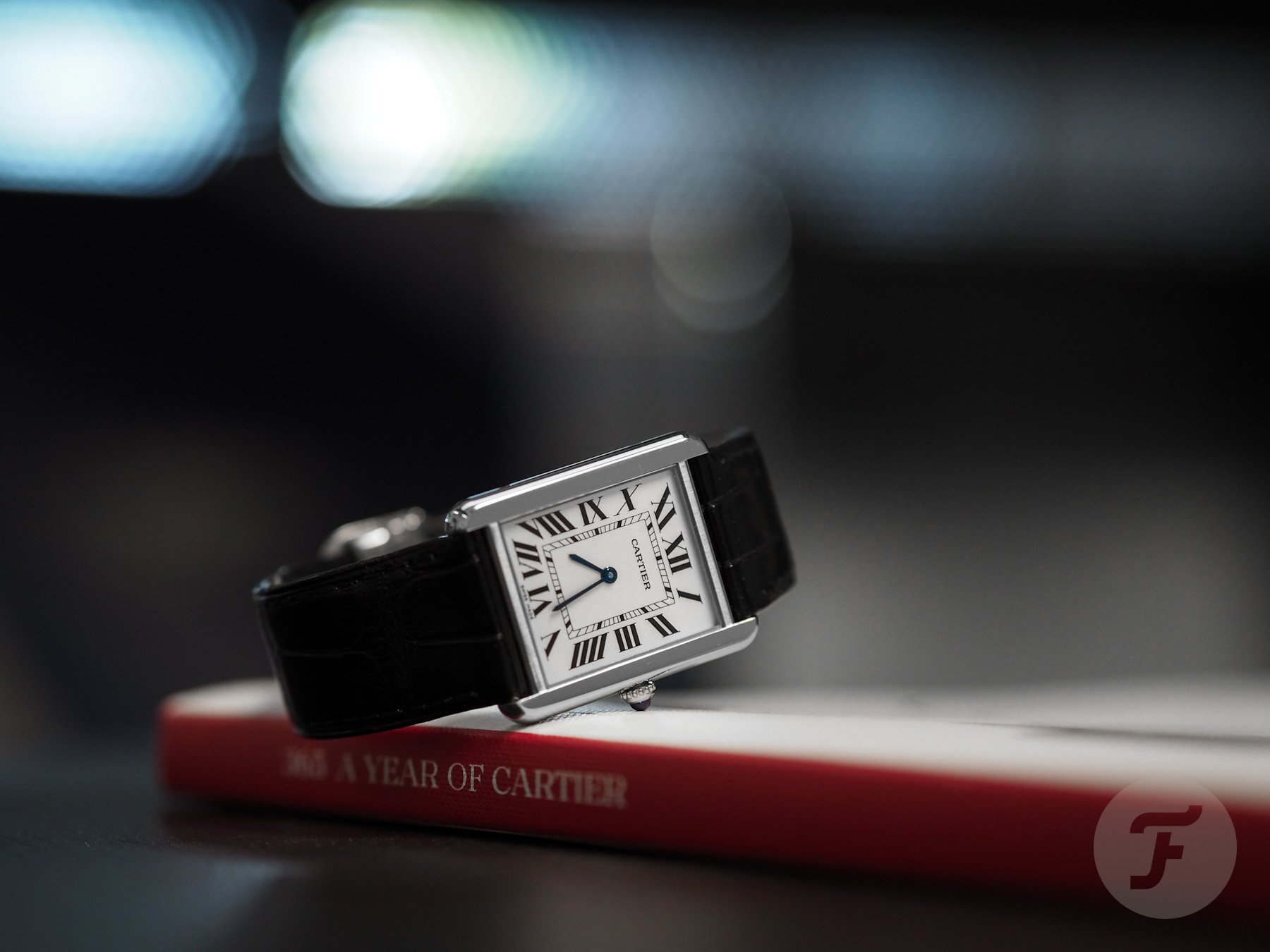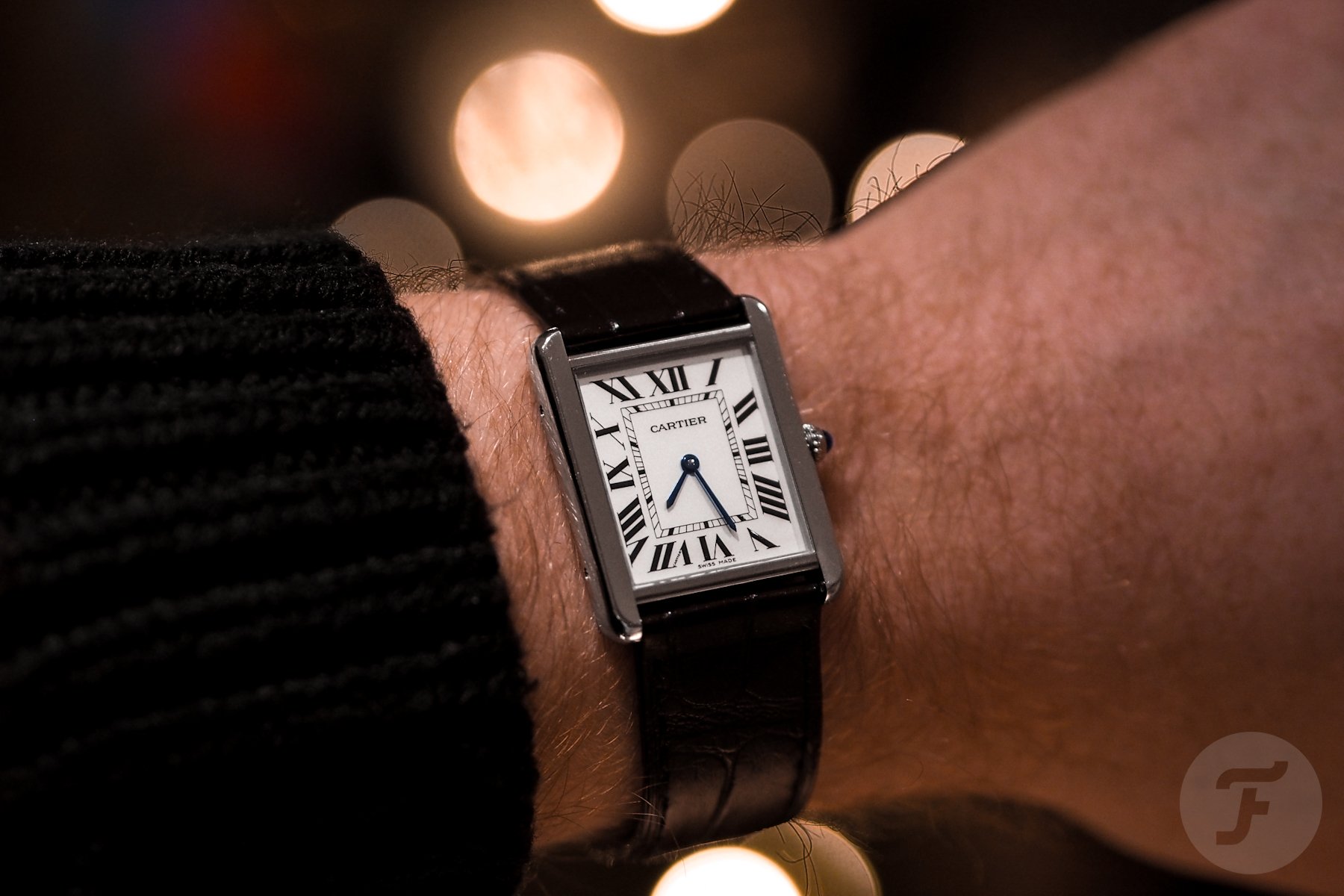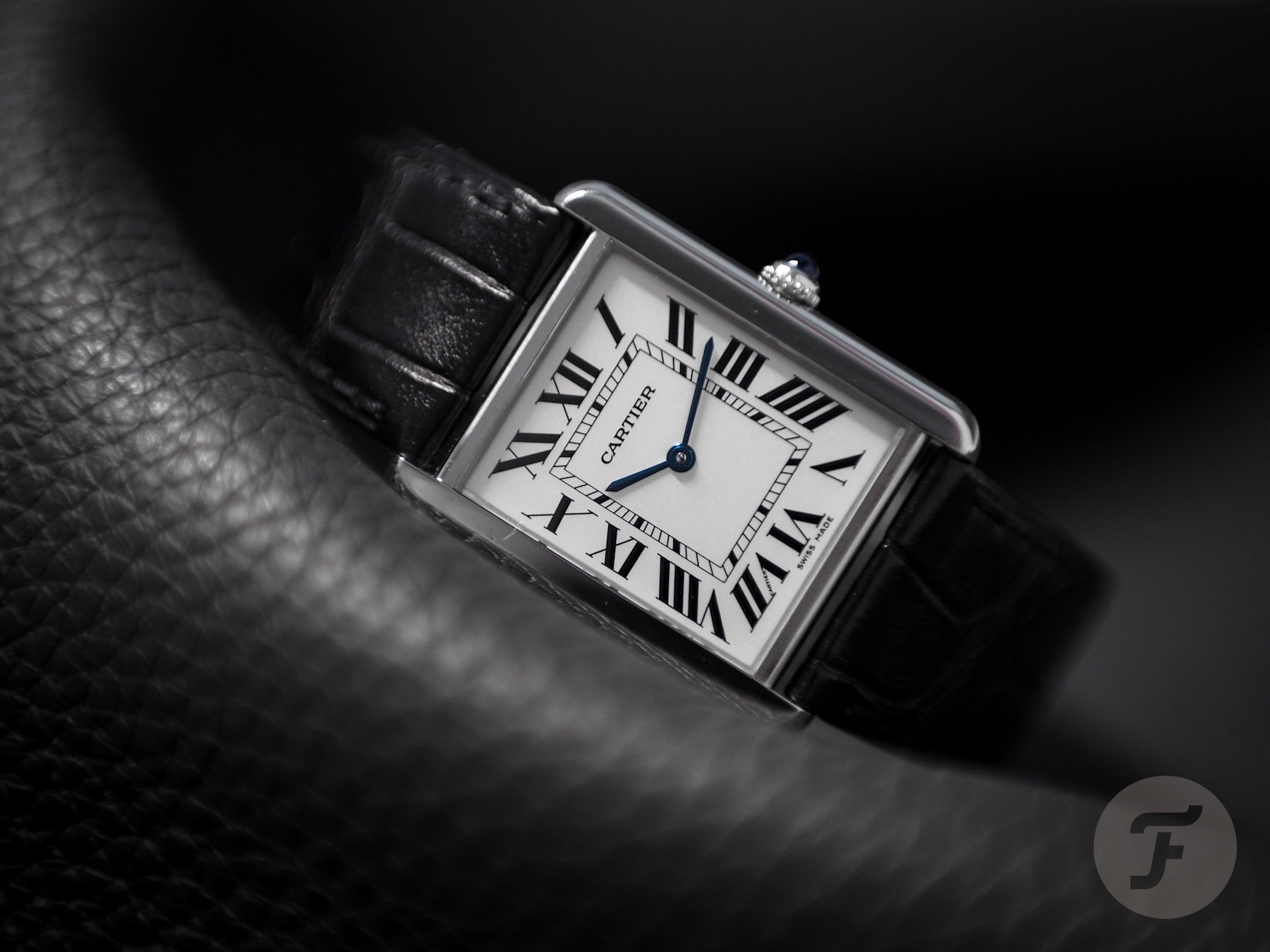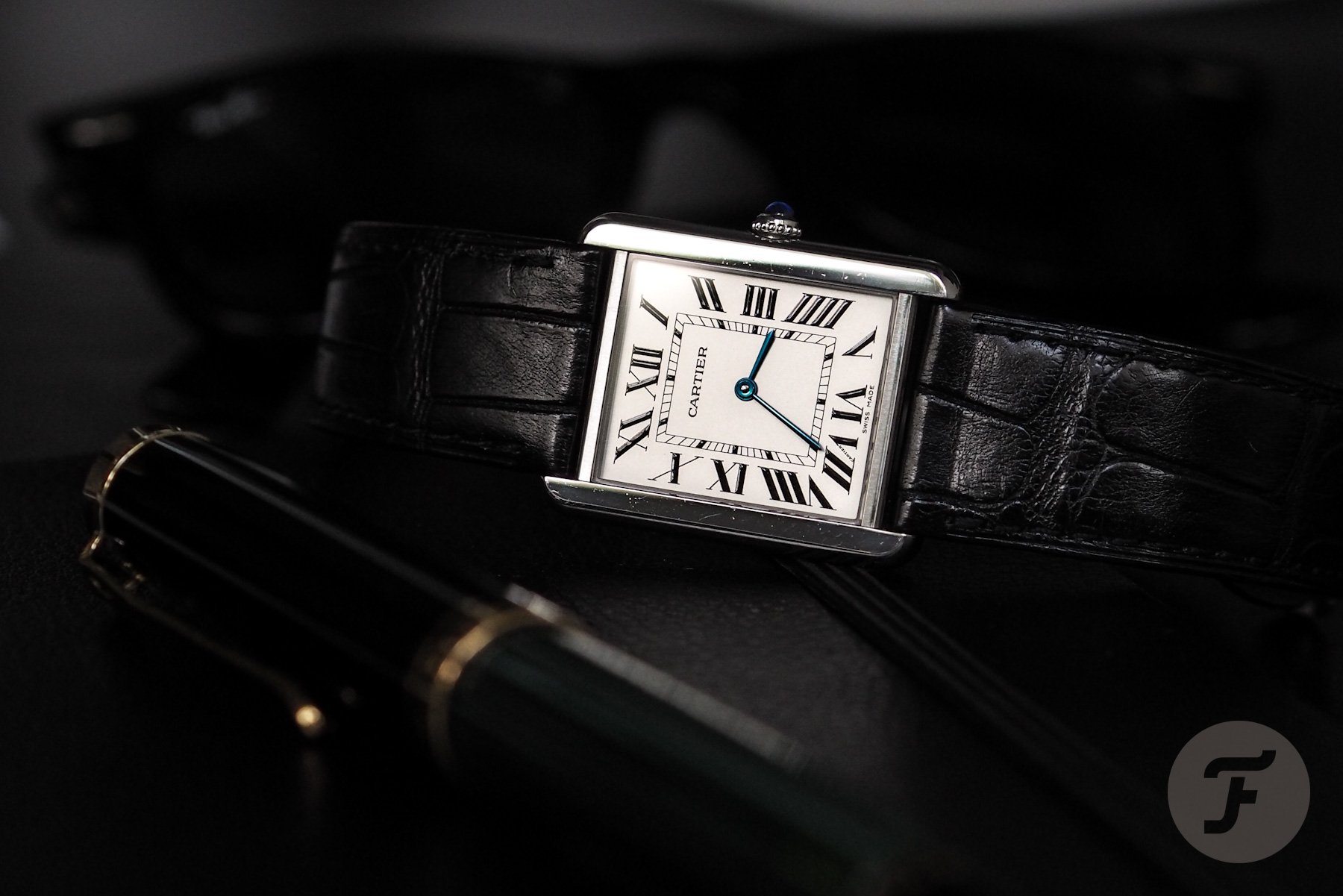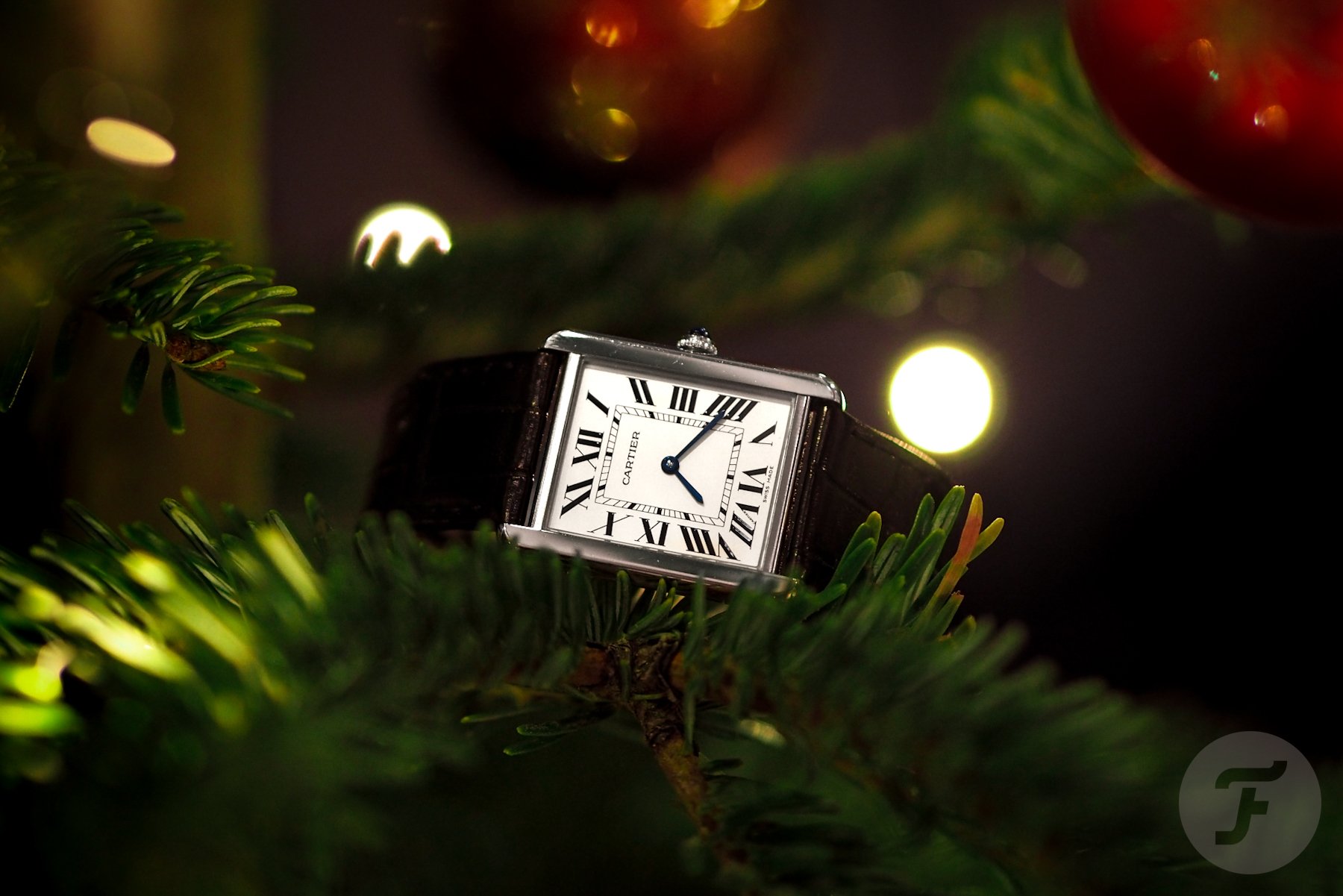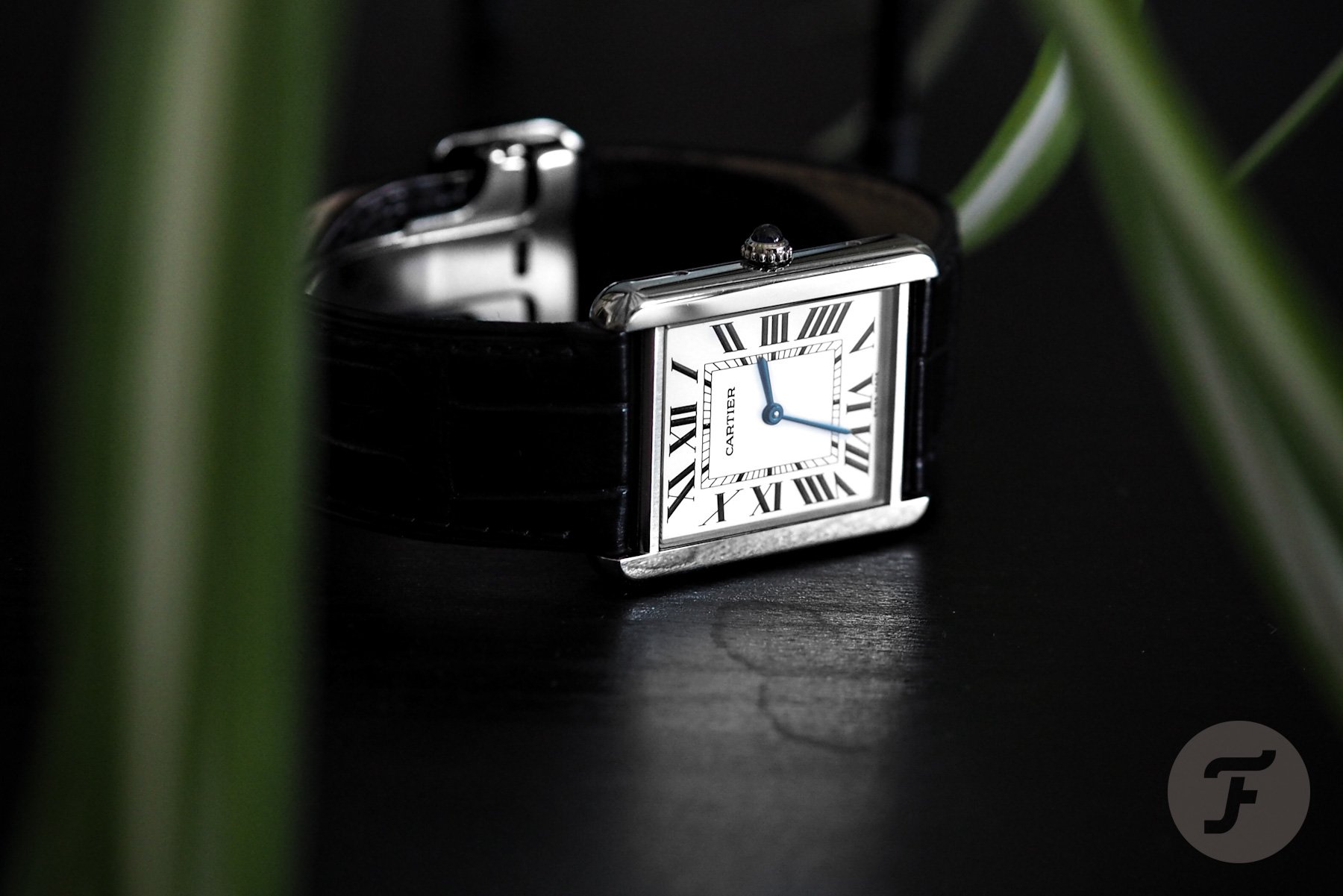Why You Can’t Help But Love The Cartier Tank
The pursuit of perfection is a doomed undertaking. Take the creation of the perfect watch, for instance. Building an ideal watch that is entirely without technical and aesthetical flaws, defects, or shortcomings is the watchmaker’s vision. Unfortunately, it’s one that will never materialize. But when you change perspective from creator to audience, perfection is something that can be perceived. Some hear perfection in Bach, see it in a statue by Michelangelo, or experience it when wearing a Cartier Tank Solo. And that experience can lead to strong feelings — love, even. Let’s try and find out why you can’t help but love the Cartier Tank.
The Cartier Tank was designed by Louis Cartier at the end of WWI. It was a non-conformist design that strived for the perfect purity of lines. Did Louis Cartier use the famous Golden Ratio in his revolutionary watch design? That I don’t know, but what I do know is that the Golden Ratio is a mathematical ratio that not only can be found in man-made objects like architecture and paintings but also in nature.
In short, beauty is measurable.
Without us being consciously aware, we rate objects that, by nature or design, display an organic, balanced, and aesthetically pleasing composition based on the Golden Ratio. In short, beauty is measurable. The Golden Ratio — also known as the Divine Proportion, or the Greek letter φ (phi) — is a number that approximately equals 1.618. The ratio itself stems from the Fibonacci sequence. That is a naturally occurring sequence of numbers that can be found everywhere in nature, such as in the shape of a Nautilus shell (not the watch).
Why you can’t help but love the Cartier Tank — let’s do the math
Let’s just do the math on this large-model Cartier Tank Solo and find out if we can find the Golden Ratio. In order to do that, we take the longer part of the Tank Solo that measures 34.8mm (a) and divide it by the smaller part 27.4mm (b). The result is 1.270. That number should be equal to the sum of (a) + (b) divided by (a). That leads to 34.8 + 27.4 = 62.2. Divide that by 34.8, and you get 1.787. As you can see, two different (and wrong) numbers. Not the Golden Ratio’s “winning number” 1.618. But maybe the result is close enough for the human brain to register the Tank Solo as pleasing on the eye, as it does with things touched by the Golden Ratio.
But the beauty of a watch is not only defined by numbers. There’s also the use of materials, graphic elements, and of course, the more lucid aspect of brand perception.
The Cartier Tank Solo is greater than the sum of its parts
When we start with the basic building blocks of the Cartier Tank Solo, nothing exceptional comes into view. There’s steel, leather, and probably the most exciting material, a blue sapphire cabochon on the crown. The graphic elements — the characteristic large, black Roman numerals on a clean white dial and the name Cartier being the most dominant — give the watch its highly recognizable face.
And that face, instantly and without hesitance, says “Cartier”. This is the exact moment when the Cartier Tank Solo can become greater than the sum of its parts. That’s because, on top of the near-perfect proportions, the Tank Solo tells a visual tale of luxury, fame, and culture. The more you believe and like to hear that story, the more you will like the looks of the watch. There’s even the possibility that you liking it will turn into you loving it.
Objectophilia — the extreme love for objects
How many times have you said to yourself or someone else that you love your watch? I know I have many times. But do I really love my watch? Well, if you define love as the deep acceptance of and affection for, kindness to, or devotion to an object, it can. Love is not exclusive to people or animals. Love can also be felt for actions and things — the love for playing sports or your profession, for instance. And even more abstract is the love for one’s country, religion, and nature.
A very extreme example is Carol Santa Fe from San Diego, California, who claims to be “married” to the Santa Fe train station.
But let’s keep things tangible with the love for objects. That love, like love sometimes does, can lead to extremes. Ever heard of objectophilia? Can’t blame you if you haven’t. Objectophilia or object sexuality refers to a strong romantic attachment to an object. A very extreme example is Carol Santa Fe from San Diego, California, who claims to be “married” to the Santa Fe train station. Why? Because she says she’s been in love with the station since she was nine years old. Any kind of true love that lasts is just so beautiful, don’t you think?
From courtship to marriage, e.g. purchase
Would you want to marry your favorite watch? Just ask yourself that question, keep the answer to yourself, or share it in the comments section at your own risk. By the way, I’m not going to ask Ignacio about his love for his Tank Solo and eventual wedding plans. The Cartier you see in the pictures is the watch he won in a photo contest on Instagram. It might be true love by now, Nacho Man, but that happening is pure coincidence. Love for a watch can happen instantly. I experienced Cupid’s arrow when I saw the Grand Seiko Tough Quartz SBGX341, for instance. But it can also be the result of getting to know the ins and outs of a watch — courtship and eventually marriage, e.g. purchase. And the ins and outs are the aforementioned physical characteristics plus the story a watch and the brand behind it tell.
The untouchable Tank
To stick with the story terminology, the Tank Solo, or any Cartier Tank for that matter, is a long-running feuilleton. The story started in 1917 when Louis Cartier presented American General Pershing a rectangular watch, the shape of which was inspired by the new Renault tanks active on the Western front.
It’s a watch that rises above taste and preferences …
Over time, the shape of the Tank on the wrist evolved, and new models were introduced, but its essence remained the same. When you see a shape for over a century, it becomes familiar. And the Cartier Tank has become an untouchable object. It’s a watch that rises above taste and preferences, and its provenance and elegance are undisputed. The fact you might not really care for the watch is irrelevant. The Tank also rises above the question of whether it is formal or informal. The Cartier Tank is what it is — simply untouchable. Therefore, you can wear it with anything; I think combining Vans Era sneakers with a Tank Solo is an awesome style statement.
Why you can’t help but love the Cartier Tank — Here are the answers
The final answer to why you just can’t help but love the Cartier Tank is a combination of factors. First, because the Tank is mathematically near-perfect. And the Tank’s unconventional, revolutionary shape has, over time, become a familiar and comforting sight; it’s an expression of style, taste, and a subtle statement of luxury and status. Also, the Tank was seen on the wrist of the most influential people in the world — think movie stars, royalty, fashion designers, and artists. It made the Tank both an inspirational and aspirational watch. And that is why you can’t help but love the Cartier Tank.
But in the end, do you really need a reason or an explanation for why you love something or somebody? Ultimately, it’s the warm and fuzzy feeling that loving something gives you that matters. And the good thing about loving your watch is that when you treat it right, it will neither leave you nor break your heart.
Find more about the many versions of the Cartier Tank on the brand’s official website.
Please find and follow me at Lex Stolk • Instagram

